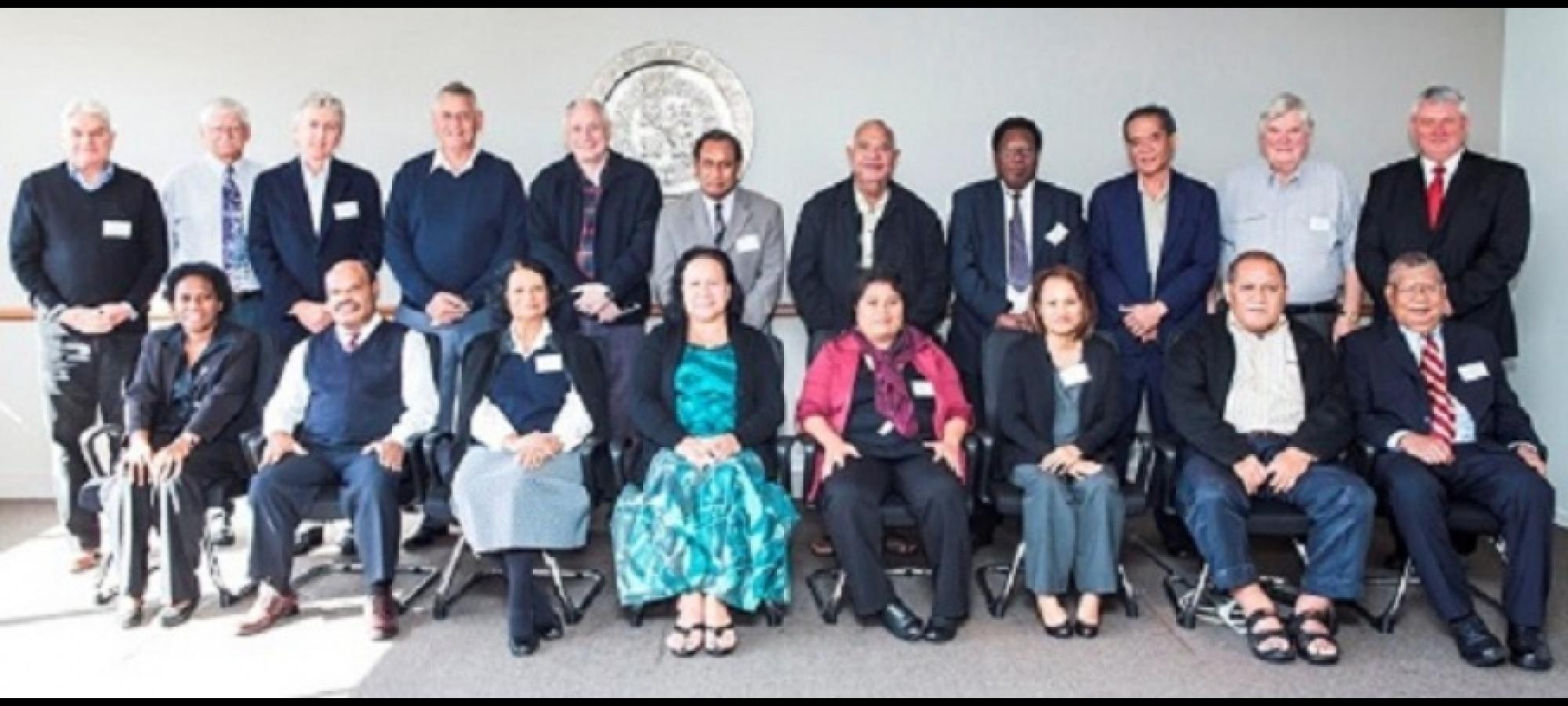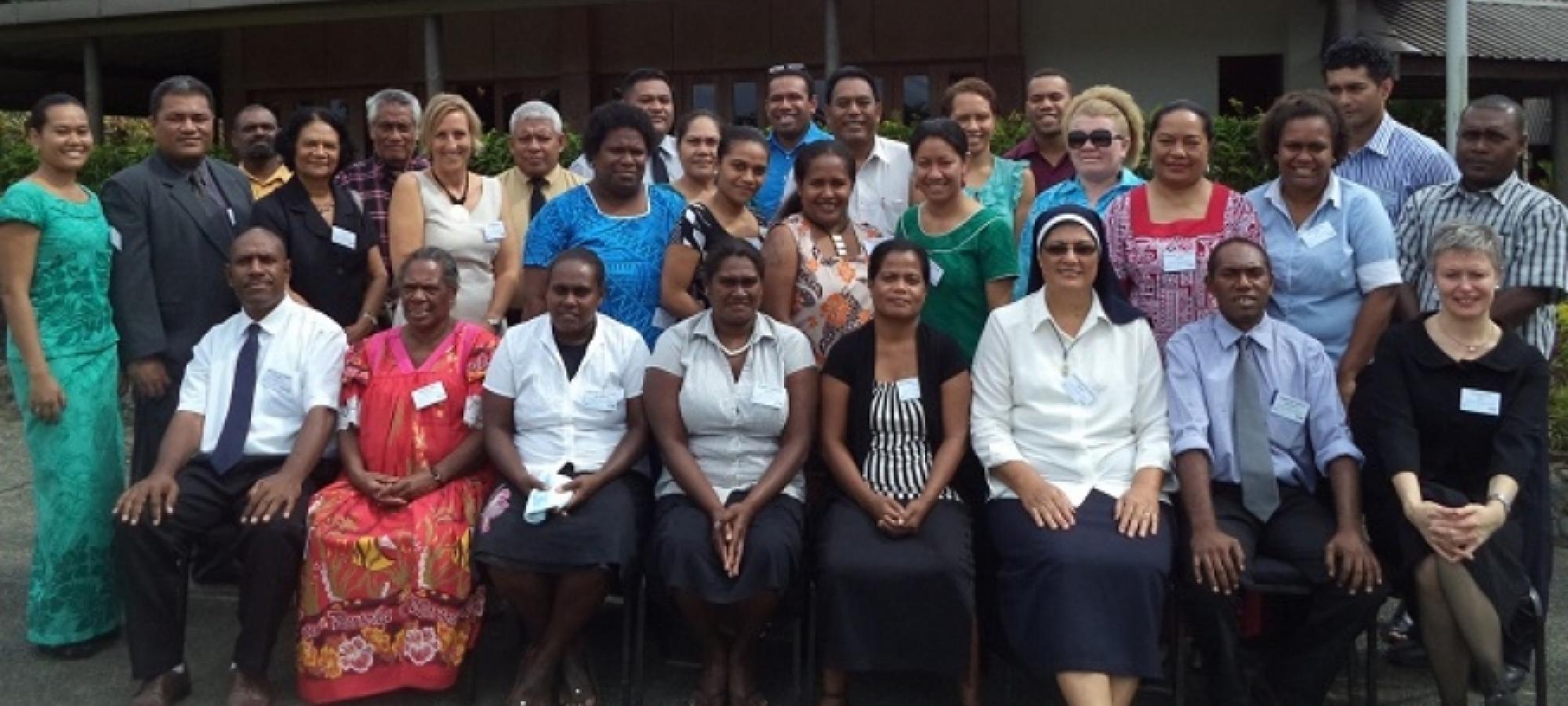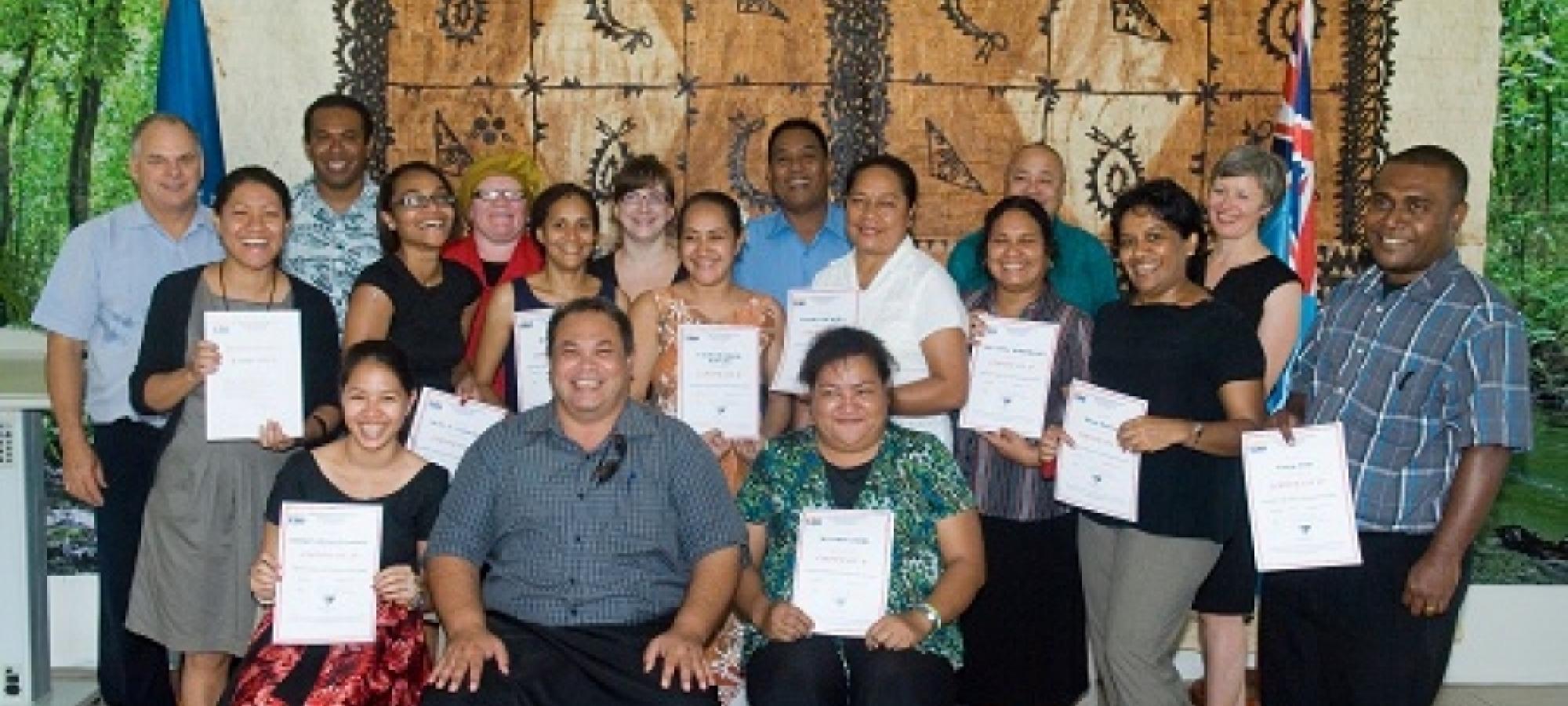Pacific judges and magistrates consultation focuses on human rights issues in the region

Wednesday 5 June 2013, Secretariat of the Pacific Community (SPC), Suva, Fiji –
A three-day regional consultation for judges and senior magistrates from across the Pacific, organised by the Secretariat of the Pacific Community Regional Rights Resources Team (SPC RRRT), took place this week in Brisbane, Australia.
The consultation focused on judicial independence, rule of law, and human rights issues in the contemporary Pacific context. They included sexual- and gender-based violence, disability inclusiveness and impacts of the Convention of the Rights of the Child on adoption.
The consultation serves as a forum for judges and magistrates from the Pacific region to share their professional experiences, with the aim of expanding their knowledge of human rights issues and best practices in the region.
The keynote address at the opening ceremony on Monday was delivered by Justice Logan of the Federal Court of Australia. The Pacific judges and magistrates were later hosted to a cocktail reception by the Chief Justice of Queensland, the Honourable Paul de Jersey, and judges of the Supreme Court of Queensland.
The consultation was attended by judges and magistrates from Australia, Cook Islands, Kiribati, Nauru, New Zealand, Palau, Papua New Guinea, Republic of Marshall Islands, Solomon Islands, Tonga and Tuvalu.
SPC RRRT has supported the work of regional judges and magistrates for over a decade, mainly focusing on the promotion and application of international human rights treaties and universal standards in Pacific courts. This work supports state obligations derived through the ratification of international human rights treaties and the application and domestication of international human rights standards in Pacific courts.
The regional consultation this week is generously supported by AusAID.
For more information, please contact Jilda Shem, SPC RRRT Communications Officer on +679 330 5994 or email [email protected]












